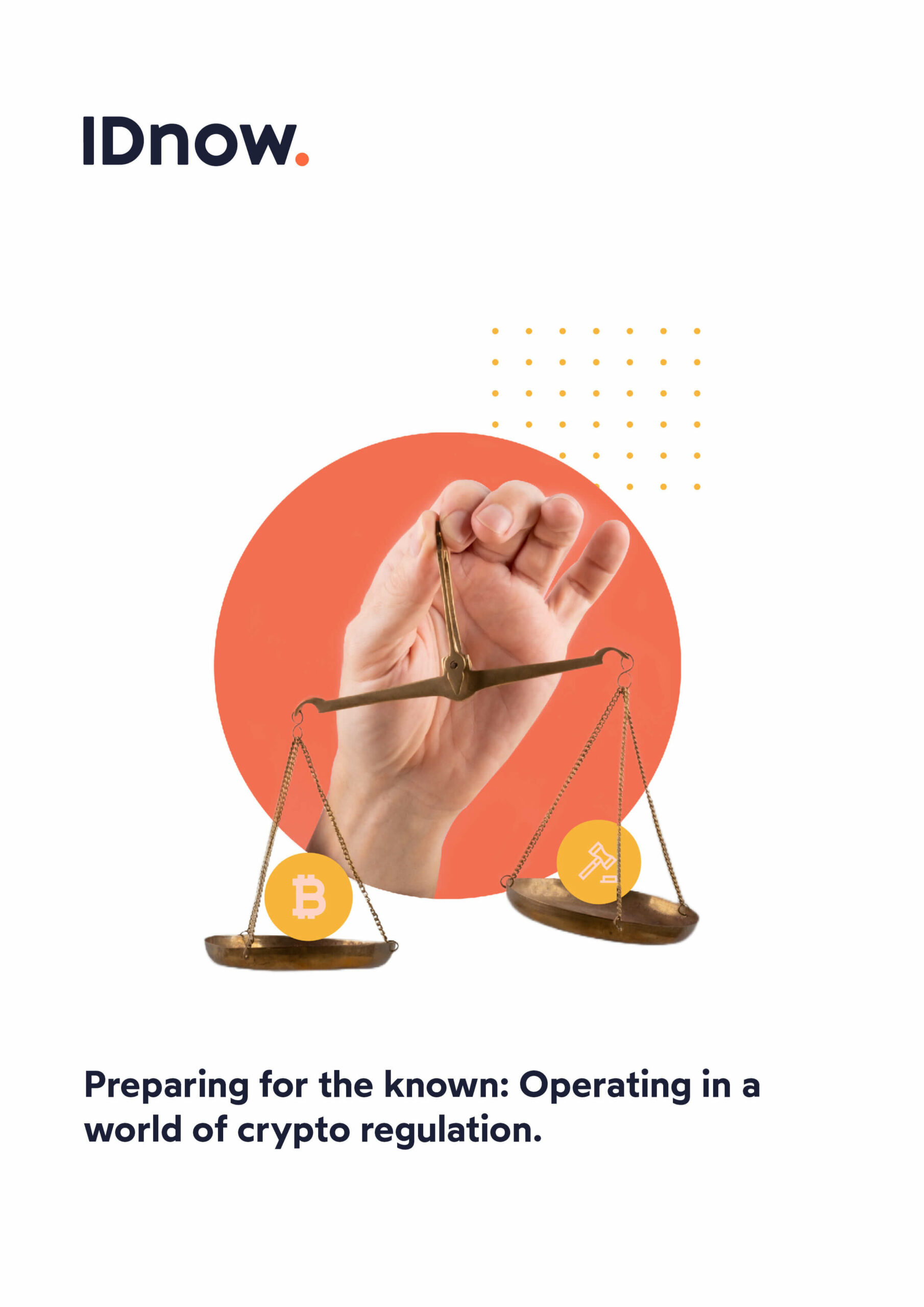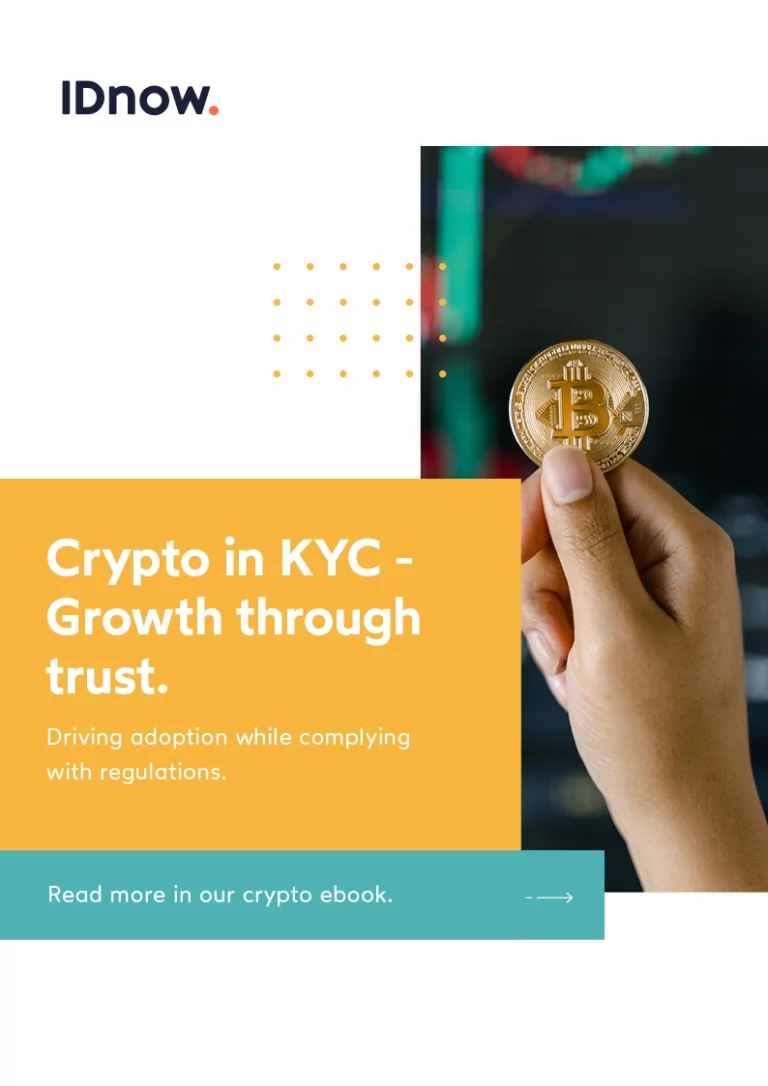Learn more about the role of KYC in a decentralized world.
DeFi or decentralized finance is one of the hottest buzzwords in fintech and crypto right now. Together with NFTs (Non-Fungible Tokens) DeFi has been dominating the news since 2021. But what is the noise all about, and why is the criticism from the regulators so loud?
What is DeFi?
Decentralized finance means financial services or instruments that are not managed by a central company or authority, but rather operated on a form of blockchain or DLT. Essentially, DeFi allows users to directly interact with a product or service without any intermediaries. By being open, borderless and permissionless, DeFi wants to democratize financial services and make them accessible for everybody in this world.
The risk: When AML meets anonymity.
In the early days of crypto, many crypto exchanges did not require a KYC check. It is for this reason, among others, that crypto still has a rather negative stigma around money laundering and fraud. What’s more convenient than an anonymized and fully digital cryptocurrency with little to no AML monitoring? However, ‘Buying crypto without KYC check is an immense risk for both users and platform operators’.
Is DeFi the new wild west?
The unregulated times of crypto are long gone, at least for central providers. Following the rising popularity and increasing mass adoption, the financial authorities have caught up and have started to include crypto usage into existing laws. Some countries have even created new rules, such as a crypto custody license in Germany. However, through the rise of DeFi, is the industry is on the way of turning back into the wild west?
Preparing for the known: Operating in a world of crypto regulation.

How is DeFi different from other crypto services?
The straight answer is: control. While the offered services might be the same at first sight, there is a huge difference in governance. While a crypto exchange like Coinbase or Bitpanda is operated by a company with a legal entity, decentralized exchanges, like Uniswap, are not. As such, if something went wrong, there is no single entity to be governed or sued.
How unregulated DeFi affects the image of crypto.
Open, borderless, permissionless – for the same reasons DeFi offers limitless opportunities, it brings with it the same abundance of risk of money laundering and fraud. In traditional financial systems, central institutions and governing authorities were created to prevent fraud and ultimately build trust.
Regulators are struggling to comprehend and process DeFi applications without institutions or intermediaries. As a result, the international Financial Action Task Force (FATF) published a new guidance for virtual asset service providers (VASP) with a new focus on DeFi. In their guidance, the FATF is essentially recommending its members to crack down on DeFi without a KYC check and proper AML monitoring.
KYC does not mean centralization.
Critics say that any form of KYC would transform a DeFi application into a centralized service, but that is not necessarily true, as the KYC check does not need to be performed by a central entity. Instead, DeFi protocols could create the mechanisms to allow trusted third parties, like identity providers, to perform the KYC and verify the holder of a crypto wallet. Based on a successful identity verification and AML screening, a wallet address could then be whitelisted. In this way a DeFi protocol could remain decentralized, but the trust and security would increase tremendously.
The introduction of KYC technologies to DeFi platforms will ultimately pave the way for institutional adoption. Transacting with anonymous parties on-chain is inherently risky, and allows bad actors to thrive. In DeFi, KYC could mean owning your own data, and only having to divulge that which is necessary using zero-knowledge proofs.
Jason Tucker-Feltham, Head of Crypto Sales at IDnow
DeFi is global, but regulation is local.
One of the key benefits of DeFi is being borderless and accessible to everybody on the internet, as opposed to traditional finance, which is centralized with local financial and AML regulations. To onboard and service customers from all around the world, you not only need partners that can handle a large variety of identity documents, but also comply with the respective country-specific AML regulations.
How KYC could boost DeFi mass adoption.
Corporate users and institutional investors require compliant solutions in order to comply with multi-regional regulation. For example, big players like PayPal and Robinhood are asking Uniswap, the largest decentralized exchange, as well as OpenSea, the leading NFT marketplace, to implement mandatory KYC checks before they can integrate the services. Complying with KYC and AML regulation, therefore, opens DeFi up to new user groups, which could boost mass adoption.
The light side: DeFi plus KYC & AML.
Ultimately, the decision whether to comply with KYC or not, will split the world of DeFi into a light and a dark side. It’s up to developers of DeFi protocols to decide on which side they want to play. Those who intend to join the light side should look into implementing KYC checks before the regulators begin to crack down on DeFi.
To learn more about how IDnow can fulfill your KYC needs in a decentralized world, visit our Crypto industry page. Make sure to read our blog post on ‘Gaining trust during uncertain times – How KYC crypto solutions can lead the way’ for further information on crypto.
By

Jonathan Bluemel
Senior Content & SEO Manager at IDnow
Connect with Jonathan on LinkedIn
Crypto in KYC – Trends & Regulations.




